Over 30 years of anarchist writing from Ireland listed under hundreds of topics
Newsroom
Reduced numbers at 2019 March for Choice after referendum win but a big fight is coming in 2021
The 2019 annual March for Choice in Dublin was smaller than the previous two marches as many assumed the abortion referendum that Repealed the hated 8th amendment had settled the issue. In fact the legislation brought in by the Fine Gael government in the months after the referendum left some groups behind, in particular migrants and forces everyone to go through a medically useless 3 day waiting period. Despite being warned about this and other issues including the trans exclusive language Fine Gael went ahead with the flawed legislation so some still have to travel and not everyone has the papers or resources to be able to do so. The legislation is up for review in 2021 and the anti-choice organisations are gearing up to try and roll back the legislation, the pro-choice movement needs to not only stop them doing so but needs to try and force whoever is in power to remove the flaws in the legislation. [Video]
What Happened When Portugal Decriminalised Abortion?
With the referendum to repeal the 8th 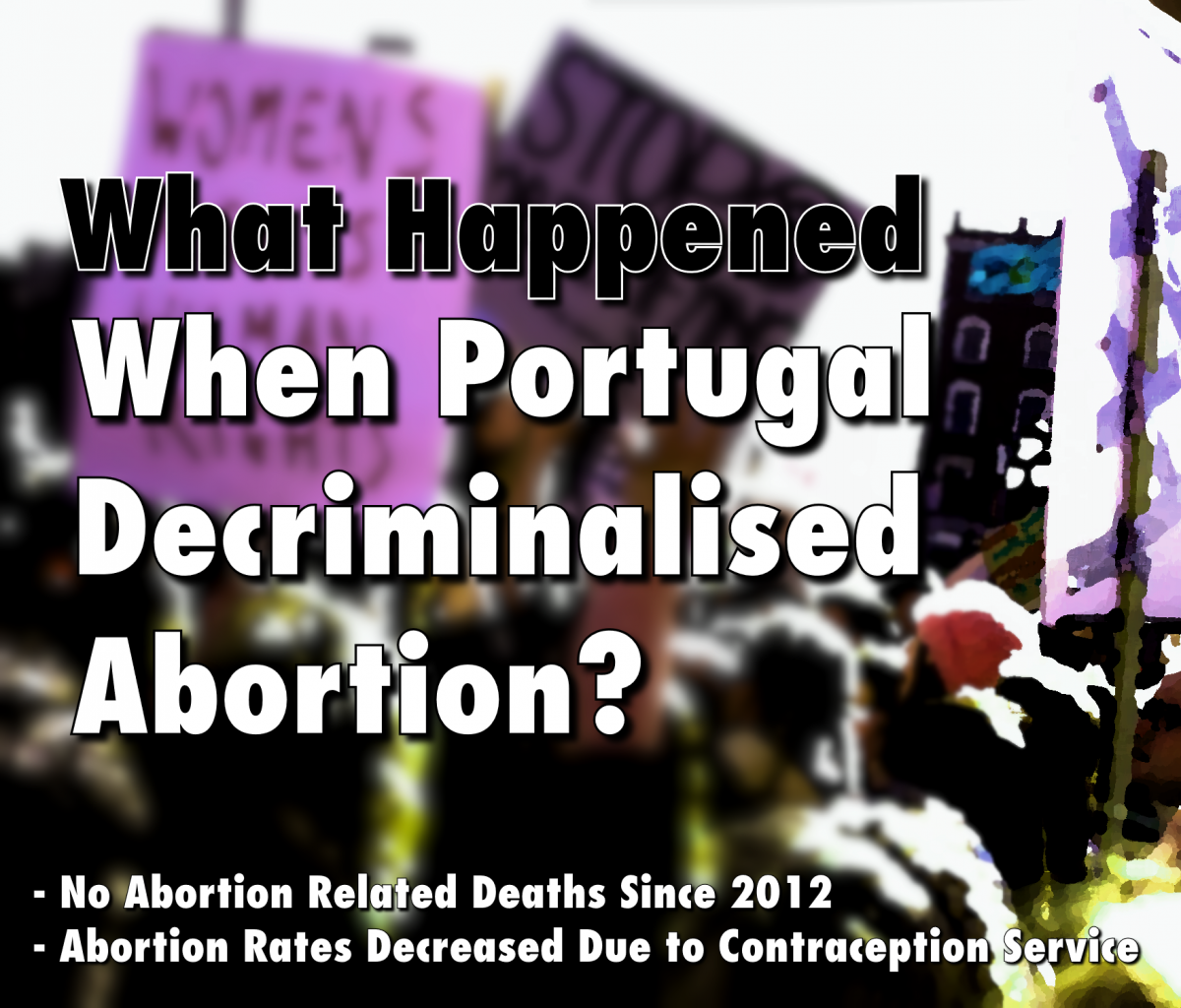 amendment on May 25th drawing nearer, it’s with great interest that we look at the experience of other countries which have struggled against an abortion ban like ours, to learn from the lessons of the campaign, and to ‘look into the future’, as it were, and see the result of decriminalising abortion. As such, here are some brief notes on Portugal.
amendment on May 25th drawing nearer, it’s with great interest that we look at the experience of other countries which have struggled against an abortion ban like ours, to learn from the lessons of the campaign, and to ‘look into the future’, as it were, and see the result of decriminalising abortion. As such, here are some brief notes on Portugal.
On 11th February 2007, in a national referendum, the Portuguese voted in favor of the decriminalization of the "voluntary interruption of the pregnancy" (VGI). It was the end of more than 30 years of struggles, advances and retreats, with many public debates dividing several quarters of Portuguese society.
Fascist Party Openly Campaigns as 'Abortion Never' to Keep 8th Amendment
Seen any of these posters around recently? You may be interested to know  they are a product of the 'Abortion Never' campaign, an initiative of the anti-immigrant, far-right National Party. The party is led by one Justin Barrett who is arguably best known for leading Youth Defence from the early nineties until 2004.
they are a product of the 'Abortion Never' campaign, an initiative of the anti-immigrant, far-right National Party. The party is led by one Justin Barrett who is arguably best known for leading Youth Defence from the early nineties until 2004.
In the past he has attended several events hosted by the German NPD, a Neo-Nazi group, whose then deputy leader confirmed that the NPD was 'friendly' with Youth Defence. Italian fascist group 'Forza Nuovo' reported that Mr Barrett has also attended several of their events in the early 2000's.
Even after Mr Barrett's departure, Youth Defence still managed to grab the headlines though. In 2013, a Youth Defence billboard truck parked outside the Dublin Rape Crisis Centre carrying a billboard that read: "The abortion bill won't make women safer, it will just kill babies". The company who owned the truck refused to carry any more Youth Defence material after the wave of outrage that followed.
Save8Rally - 6 Points that Prove that 9k and Not 100k Marched
 Saturday March 10th saw an anti-choice march pass through Dublin, part of their campaign to try to maintain the status quo where pregnant people and doctors can be jailed for 14 years for taking abortion pills in this country while others are denied control of their own maternity care. Polls show that few people support this position and its ‘let women die’ implications so the anti-choice campaign is trying to create the fiction of mass support in the hope that people will be more inclined to vote No.
Saturday March 10th saw an anti-choice march pass through Dublin, part of their campaign to try to maintain the status quo where pregnant people and doctors can be jailed for 14 years for taking abortion pills in this country while others are denied control of their own maternity care. Polls show that few people support this position and its ‘let women die’ implications so the anti-choice campaign is trying to create the fiction of mass support in the hope that people will be more inclined to vote No.
Aware of this, WSM decided to put together a team to go out and document the march for ourselves including physically counting everyone who marched and using other techniques that give a good estimate of the numbers marching. Below we will bring you through the results of each of these counts and estimates but the headline item is that when the organisers claimed 100k had marched this was a blatant lie that we will show is even physically impossible. We counted 8930 marchers. All of the other methods we used also limited the maximum size of the march to less than 15,000.
Dundalk Stabbings Not Terrorism Despite Right-Wing Fear-Mongering
The murder of one and stabbings of two other people in Dundalk recently was a horrible incident which was terrifying for those caught up in it and has left one family grieving for a loved one. Carried out by someone who was clearly disturbed - why or what caused that remains to be seen.
was a horrible incident which was terrifying for those caught up in it and has left one family grieving for a loved one. Carried out by someone who was clearly disturbed - why or what caused that remains to be seen.
Some have reacted by letting anger or fear take over and jumping to unproven conclusions about Islamist terrorism, even after the gardaí have announced that they have investigated that possibility and found no link whatsoever. Fascist and far-right elements are drooling at the opportunity to smear all refugees, all Muslims, all people from the Middle East, and to a large extent all migrants. Social media, and Twitter in particular, has been buzzing with anti-immigrant, anti-Muslim hysteria for the past 24 hours.
Sometimes Lightning Strikes Twice: Pledge to Strike 4 Repeal
A new intention to #Strike4Repeal has been announced as we still wait for a referendum and as importantly to see what it is we will get to vote on.
See https://www.wsm.ie/strike4repeal for coverage from last year.
Pledge to Strike 4 Repeal here: https://goo.gl/forms/DTDfA9tQ0kZ0HQ6F3
Dublin Book Launch of the Worms that Changed the World
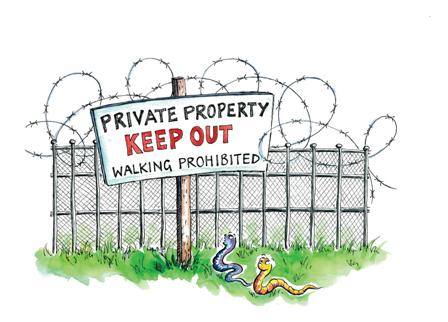 The Dublin launch of the book, The Worms that Saved the World takes place on the on the 2nd of December, in the Teachers Club, 36 Parnell Square, Dublin 1 at 4.00pm.
The Dublin launch of the book, The Worms that Saved the World takes place on the on the 2nd of December, in the Teachers Club, 36 Parnell Square, Dublin 1 at 4.00pm.
In The Worms That Saved The World a group of earthworms living on an imaginary headland begin to suffer when a golf course takes up residence around their home. The worms attempt to tell the new owners about their concerns but they are dismissed. In response they organise and join with the other birds and animals on the headland. Eventually they reclaim the headland for everyone.
'Earth is Our Only Home': 15,000 Scientists Urge Action on Climate Change
As the COP23 UN climate talks continue in Bonn, Germany, 15,000 scientists 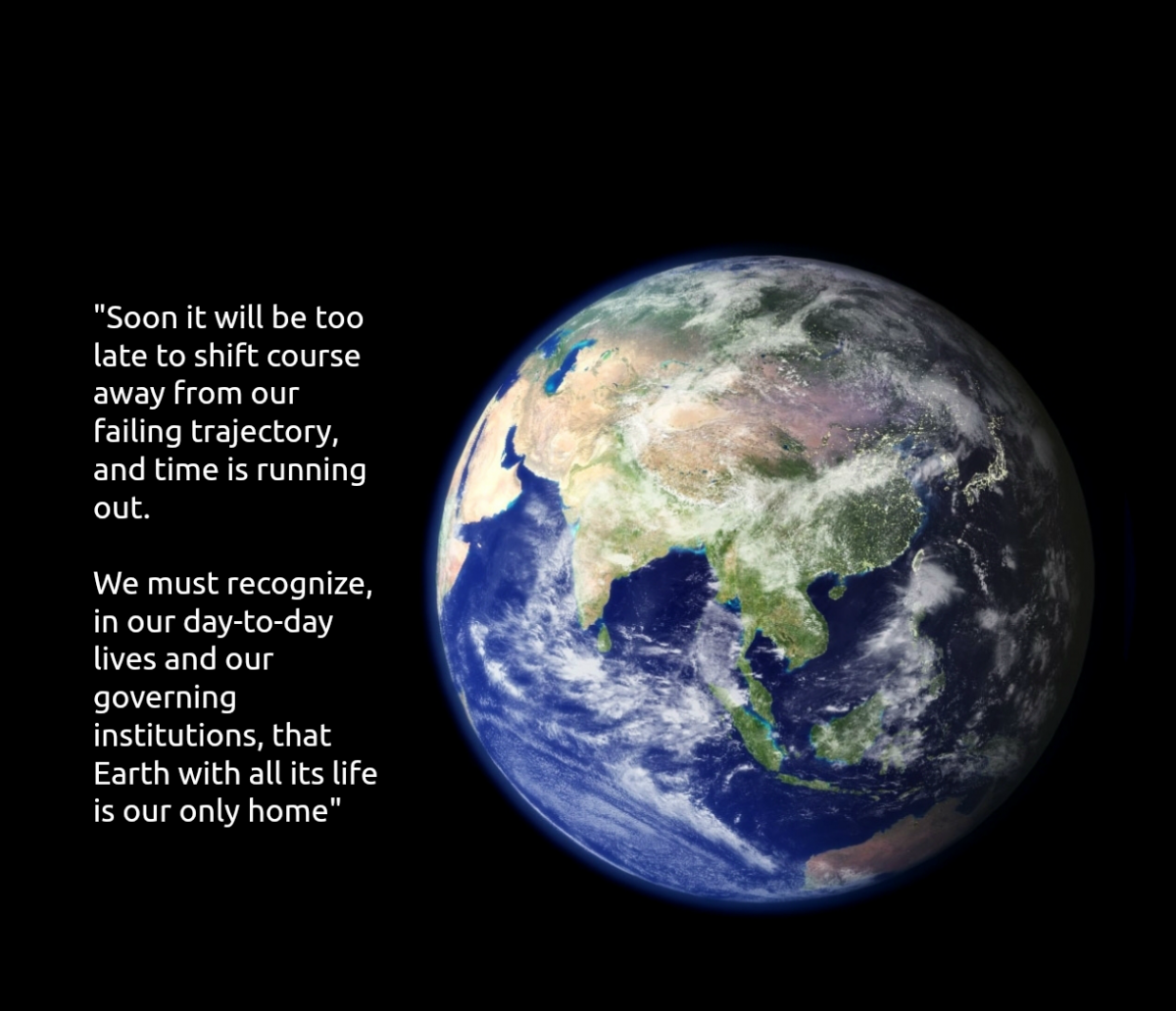 from 184 countries have signed ‘World Scientists’ Warning to Humanity: A Second Notice’, a journal article cum open letter urging immediate action on climate change ‘to prevent widespread misery and catastrophic biodiversity loss’. [1]
from 184 countries have signed ‘World Scientists’ Warning to Humanity: A Second Notice’, a journal article cum open letter urging immediate action on climate change ‘to prevent widespread misery and catastrophic biodiversity loss’. [1]
I have sometimes wondered what it would be like if we failed to stop climate change, imagining that on one sombre and momentous day the people of the world would listen to a definitive scientific announcement: ‘Fellow humans, it is my deepest regret to say that we have simply passed the point of no return.' Our heads would droop in disappointment, craving one more try at the past.
In reality, life and history are not so simple. This statement is not such an announcement of definitive failure. But we might very well read it as such if we choose to ignore the undeniable any longer. And as such, we would do well to wake up from the stupor of our routines, take stock of what truly matters, and commit to doing our part in this great battle. After all, it is a battle for survival, and at present it is as if we are allowing our rulers to march an invading army right under our noses. We can ignore reality, but it is impossible for reality to ignore us.
Climate Change - The Basics
There has been an increasing amount of public debate 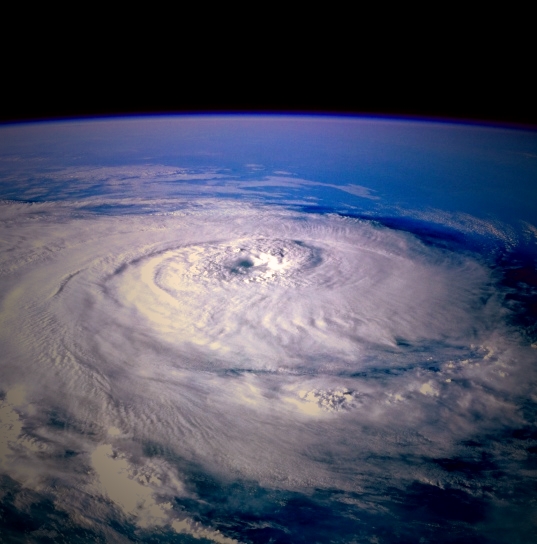 in recent years on the issue of climate change. As the effects of increasing overall global temperatures become difficult to ignore, and climatologists raise their voices in warning, more and more people are asking themselves what exactly is climate change and should we be concerned about it. As the COP23 international climate change talks take place, this article will attempt to answer those questions by briefly exploring the basic concept of climate change as described by the vast majority of climatologists.
in recent years on the issue of climate change. As the effects of increasing overall global temperatures become difficult to ignore, and climatologists raise their voices in warning, more and more people are asking themselves what exactly is climate change and should we be concerned about it. As the COP23 international climate change talks take place, this article will attempt to answer those questions by briefly exploring the basic concept of climate change as described by the vast majority of climatologists.
At its most basic level climate change simply means a change in overall global weather trends. This change can be brought about by 'natural' and/or 'artificial' means. Natural climate change occurs as a result of events which are not caused by human beings, and some common examples would be an altered amount of solar energy reaching the earth from the sun, or a series of volcanic eruptions. Artificial or 'anthropogenic' climate change occurs as a result of certain human activities such as the large-scale burning of fossil fuels and practicing specific modes of agriculture.
Climate Change Talks 2017 - What is COP23?
Thousands of people have converged on Bonn, 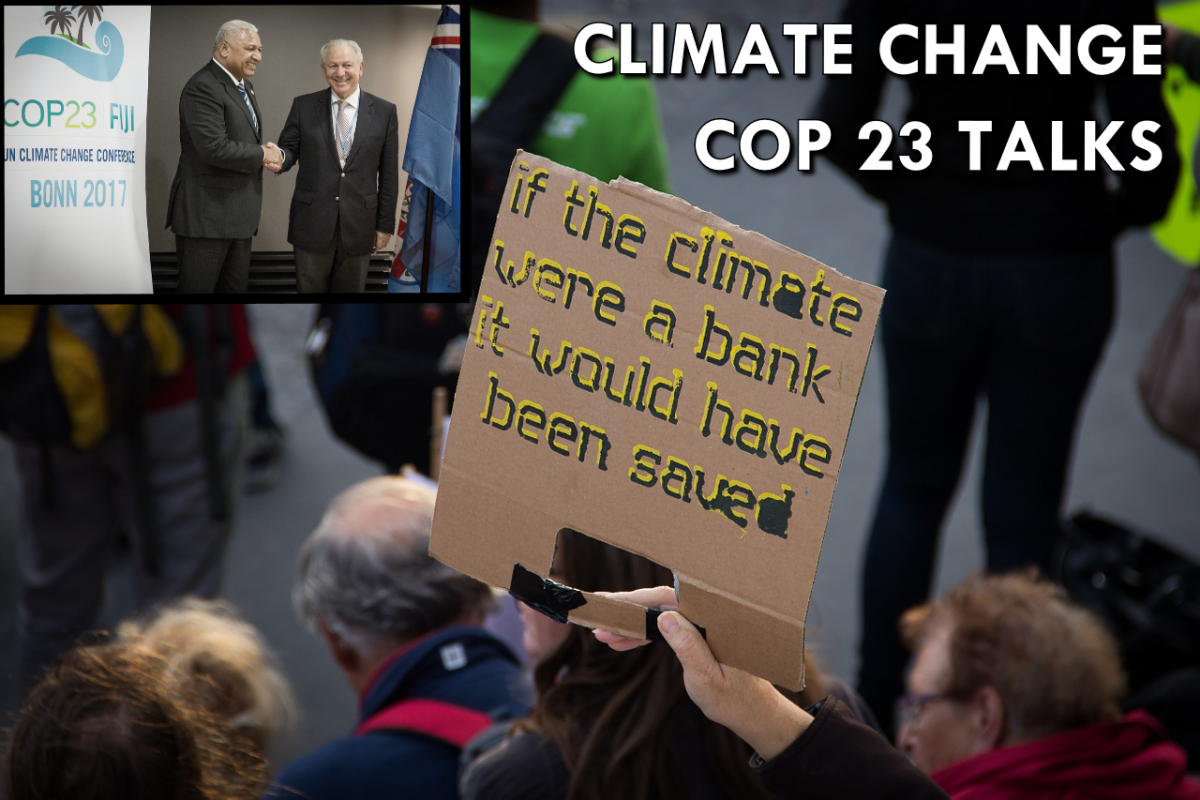 Germany, for COP23, the annual United Nations summit on climate change. What is COP 23 and why should we care?
Germany, for COP23, the annual United Nations summit on climate change. What is COP 23 and why should we care?
Climate change is a global crisis like nothing humans have seen before. COP23 stands for the 23rd ‘Conference of the Parties’, the 23rd in a series of similar climate talks. This happens within the UNFCCC or ‘UN Framework Convention on Climate Change’ - basically the UNFCCC is a plan and legal framework to seriously deal with climate change as a global society. The UNFCCC was agreed in 1992 in Brazil and has been built upon each year. It came over 30 years after climate change was given serious international political treatment by the UN in 1961 [1]. The well-known ‘Kyoto Protocol’ was agreed in 1997 at a UNFCCC summit.

